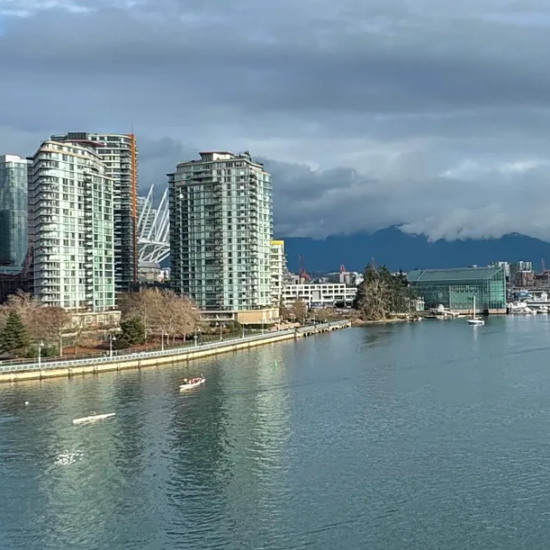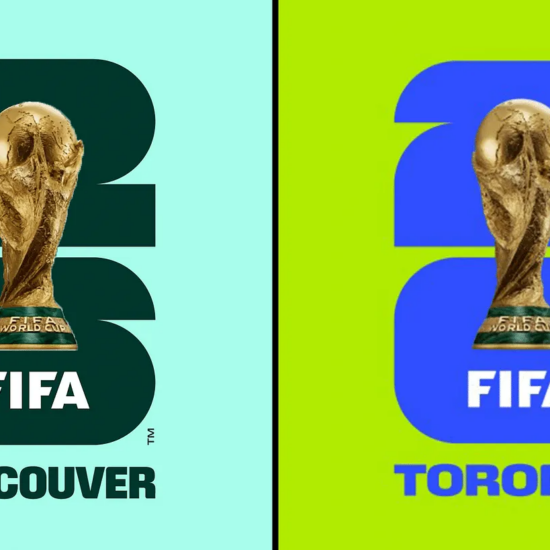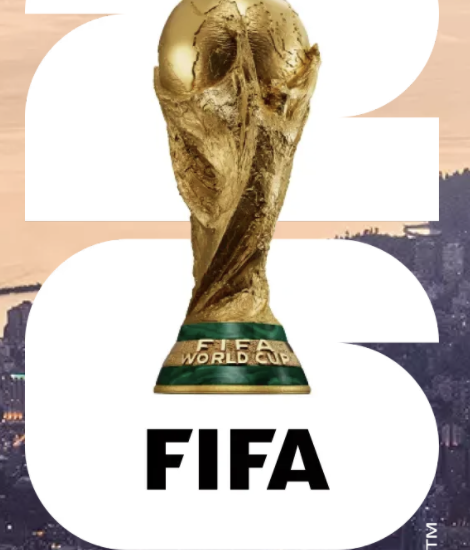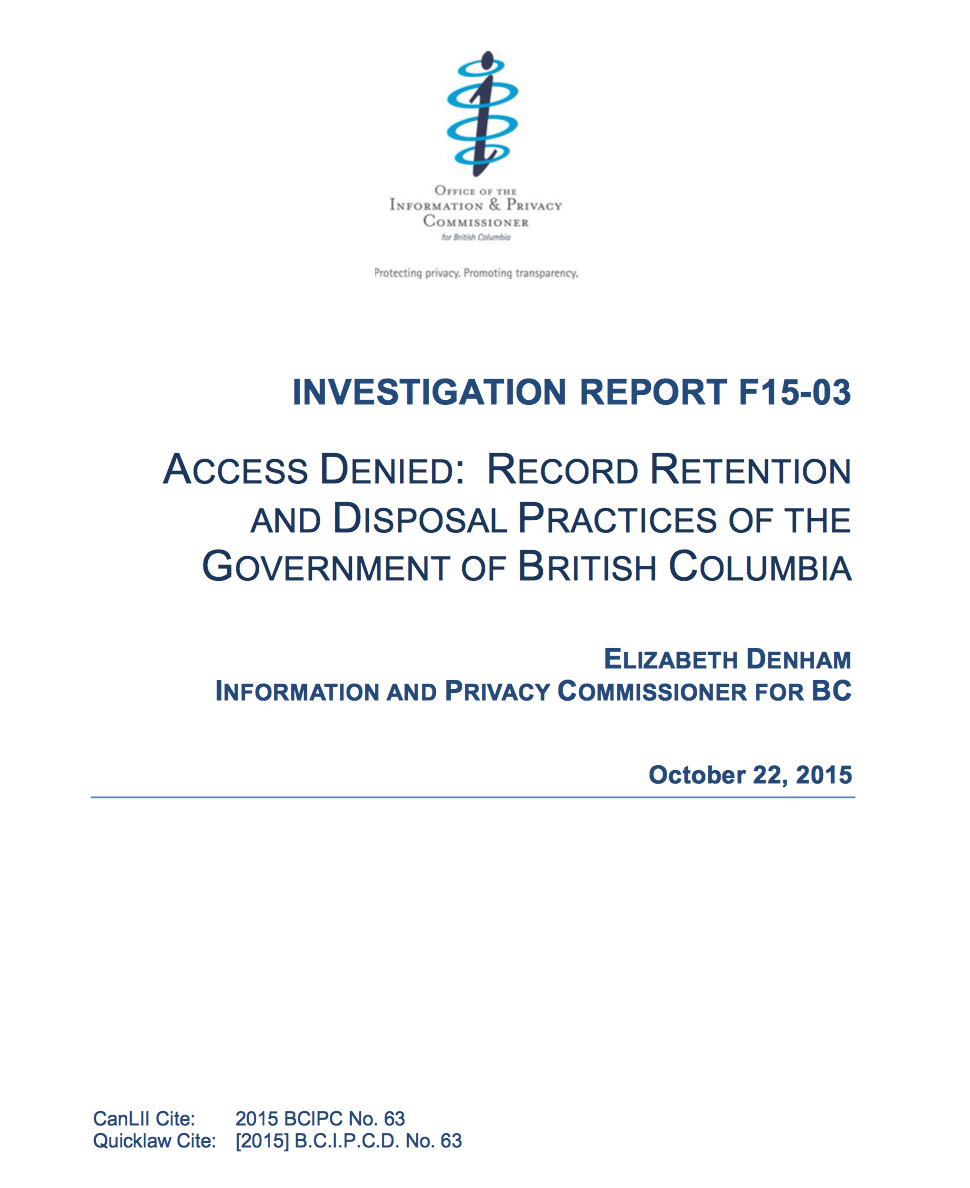
Bob Mackin
It is called putting lipstick on the pig. Or polishing the turd.
And the BC Liberals are among the best in the business because they are addicted to other people’s money. They rely on tens of millions of dollars from taxpayers and donors to fuel their modern message-massaging and manipulation machine.
It works. They got a hat trick of re-elections. Will they make it a grand slam on May 9?
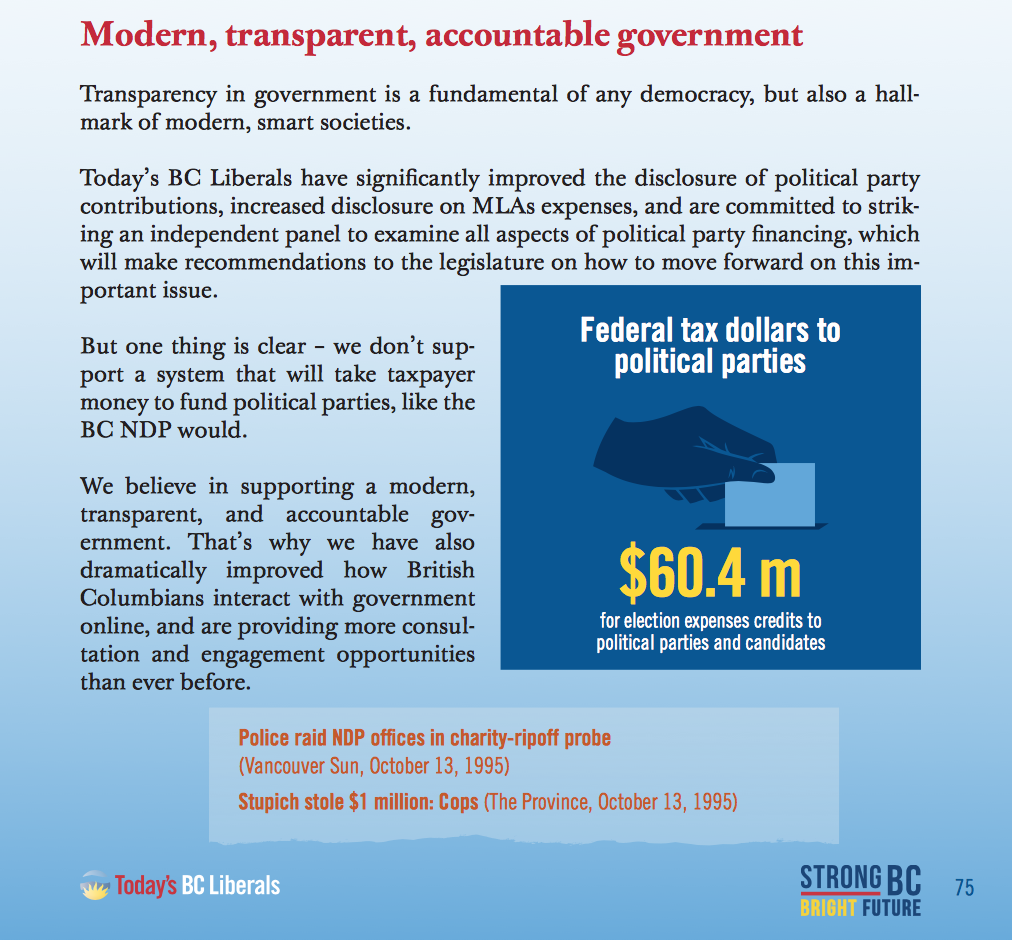
From 2017 Liberal platform.
They published their road map April 10, with Premier Christy Clark pretending to be a mother of a little girl. Skip forward to page 75 of the platform for the headline “modern, transparent, accountable government.”
Like Voltaire said about the Holy Roman Empire, the BC Liberal government is not really modern, transparent or accountable. If Clark wins another mandate, don’t expect change.
Page 30 of the party’s New Era platform in 2001 promised:
“BC Liberals will reform how government works from top to bottom, to create the most open, democratic and accountable government in Canada.
“British Columbians know that our institutions need to be reformed, to ensure all MLAs are accountable first and foremost to the people who elected them.”
Clark’s pre-premiership mug appears before it, as well as a quote from NDP’s Corky Evans, ruing the fact that power corrupts.
That was 16 years ago and this government has taken steps — no, leaps — backward. Even after Clark pledged in 2011 that she would run an open government because, as she said, after all, it’s taxpayers’ money and taxpayers’ information.
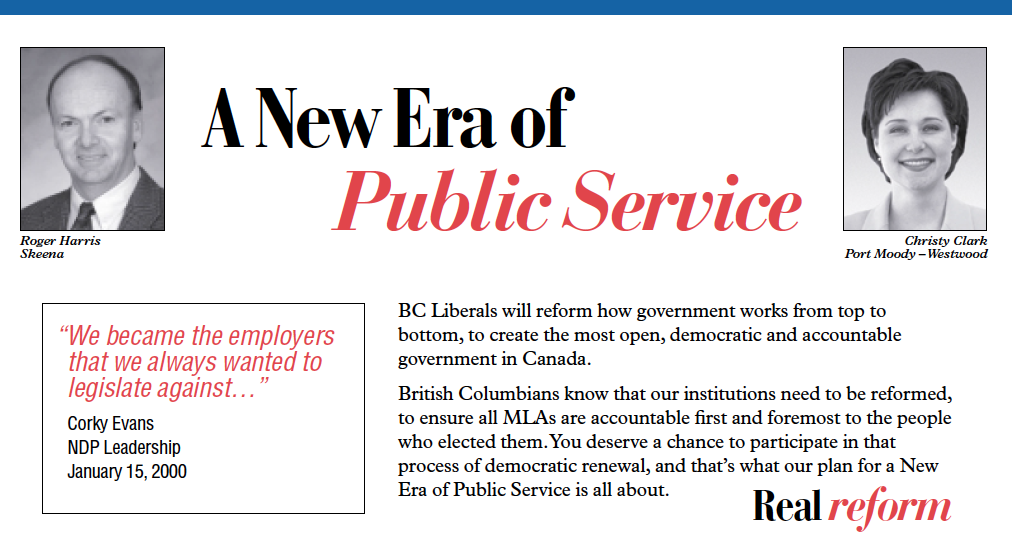
From the 2001 Liberal platform.
For starters, there is this lie that the NDP wants to put the cost of political campaigns entirely on the shoulders of taxpayers:
“We don’t support a system that will take taxpayer money to fund political parties, like the BC NDP would.”
Reality: The NDP tabled a private members’ bill aimed at banning corporate and union donations, which means the system would rely on individual donations. It wound up on the scrap heap of private members’ bills. The Alberta NDP did ban corporate and union donations after its 2015 election. What the Liberals won’t admit is that the B.C. system is already indirectly supported by taxpayers. It says so on the BC Liberals website.
The myth is that elections are expensive. But they don’t need to be so. What better way for politicians to audition for holding the public purse than demonstrating that they can be frugal in their extended job interview period?
Donors to political parties are eligible to get more money back than they would if they donated to a registered charity. For every $100 cheque the Liberals cash, the donor gets a receipt that he or she can use for a $75 credit on their tax return. A donation of $1,150 gets the maximum $500 tax credit. By comparison, donors to charities can get only $20.06 in tax credits for a $100 donation.
The cost to the public treasury is about $4 million a year in foregone tax revenue.
How many paramedics, teachers or cops could be hired with another $4 million in the provincial budget?
“…we have also dramatically improved how British Columbians interact with government online, and are providing more consultation and engagement opportunities than ever before.”
Reality: The Government Communications and Public Engagement office spends about $38 million a year, primarily to tell the public how good a job the government thinks it’s doing with taxpayers’ funds.
There are more people employed in public relations for ministries than there will be at the Vancouver Sun and Province after the latest round of Postmedia layoffs. That doesn’t count ministers’ offices, agencies and Crown corporations.
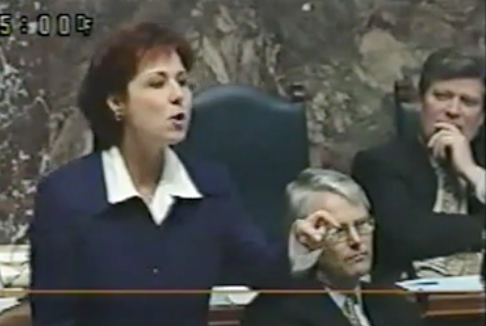
Clark bashing NDP ad waste in 1999
The recent $15 million Our Opportunity Is Here ad campaign was spun as a public engagement exercise, yet some of the ads were slammed as partisan and unnecessary by the Auditor General. Lawyers Paul Doroshenko and David Fai have sued and they want a judge to order the BC Liberal Party to repay the public treasury. (Doroshenko, by the way, is a Campbell-era Liberal who worked on three campaigns and he has turned his back on the Clark Liberals.)
Heck, even Clark herself admitted government ad spending is wasteful, way back when she was in opposition in 1999 and the NDP was in power. If you didn’t see the video of her slamming the NDP, here it is.
The section also lists three “accomplishments”:
Established the Auditor General for Local Government to enhance transparency and accountability of local governments.
Reality: In two words (and apologies to Chuck Barris) gong show!
The Auditor General for Local Government is an unmitigated failure. The first one, Basia Ruta, was fired. Ruta had finished only two audits during her three years on the job and not a single one looked behind the curtain at the biggest, most-secretive city that spends the most taxpayers’ money in the province: Vancouver.
Why don’t the Liberals want taxpayers to know about Vision Vancouver’s misdeeds? Is it because they share some of the same campaign strategists, such as Don Millar and Don Guy?
The website shows that the most-recent audit was of the City of New Westminster, from January 2016.
It prompted Canadian Taxpayers’ Federation’s Jordan Bateman to write a column comparing the office to the historical effectiveness of Vancouver Canucks’ first round draft picks. (Who can remember Alex Stojanov, Dale Tallon, Rick Blight or Dan Woodley?)
Ruta even shut down investigations before the 2014 local government elections, lest they influence voters to toss an incumbent for, you know, wasting taxpayers’ dollars.
“Given the delays in releasing any AGLG reports, this is ludicrous,” Bateman wrote. “What better time for taxpayers to get a report into their city hall than when they can take action to vote their council in or out?
“Why shouldn’t taxpayers have access to as much information as possible?”
Number two?
First Canadian province to legislate a duty to document, improving open government and best practices in information management.
Reality: When they weren’t triple deleting tens of thousands of emails, they weren’t even writing things down. Well, maybe on post-it notes.
The government moved its Information Access Operations department into the Ministry of Finance under Mike de Jong in 2016, just in time for the appointment of Clark’s hyper-political bridesmaid, Athana Mentzelopoulos, to become Deputy Minister. Mentzelopoulos is the former head of GCPE. 
Information and Privacy Commissioner Elizabeth Denham wised-up to the BC Liberals tricks in October 2015 with her watershed Access Denied report on the triple deleting scandal centred in the offices of Transport Minister Todd Stone and Clark. Stone aide George Gretes was charged with lying under oath about destroying email that should have gone to FOI requesters, later pleaded guilty and was slapped with a $2,500 fine.
Denham faced interference from government lawyers before she released the report. She took a better job with as the U.K. information and privacy commissar and was replaced by the de Jong-installed, retired Telus vice-president Drew McArthur. The committee charged with replacing Denham couldn’t agree on a replacement, so McArthur remains through the election.
The OIPC website shows that McArthur has made no significant rulings in favour of the public’s right to know, but has issued a report about surveillance at a medical clinic and how poorly the government manages smart phones, tablets and laptops. He has announced an audit of ICBC’s information sharing agreements, but the lead investigator, Tanya Allen, told theBreaker that ICBC’s controversial police line will not be one of them.
De Jong and company took almost three years to agree to Denham’s recommendation to publish ministers’ and senior bureaucrats’ calendars and expense reports. But no credible transparency advocate ever recommended publishing a list of active FOI requests or publish the documents. They did it anyway. 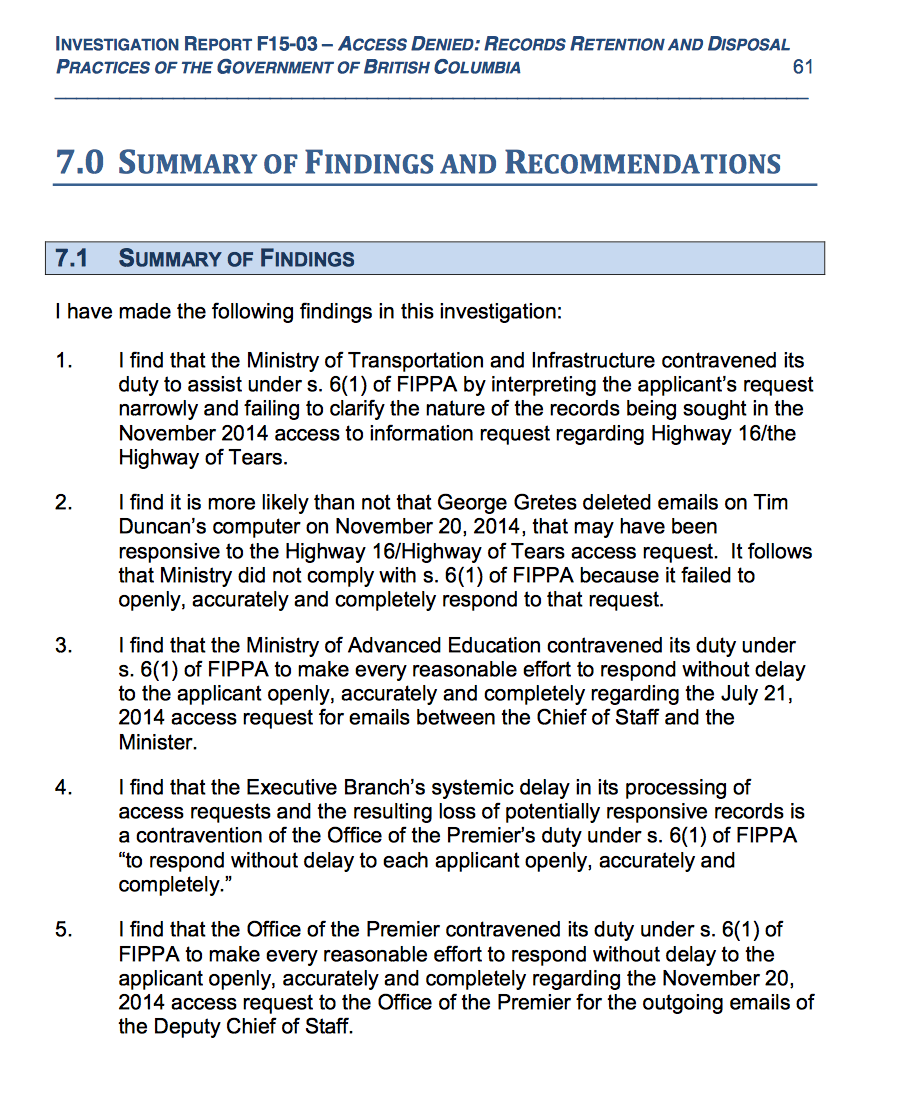
Government communications offices routinely stall reporters’ simple and reasonable requests for facts and stats and deny more interview requests with ministers than they approve. Heck, reporters aren’t allowed to talk to bureaucrats anymore. What is this, a corporation?
As for that duty to document, it’s a hollow law. On March 8, the B.C. Freedom of Information and Privacy Association’s executive director Vince Gogolek had this to say:
“Despite demands from the BC Freedom of Information and Privacy Association (FIPA), the Information Commissioner’s office and the recommendations of a Special Legislative Committee, the BC government has introduced a law that is entirely discretionary and does not create any duty whatsoever.
“The government has been feeling the pressure to do something, and this is as far as they are willing to go. The people of this province will soon be judging them on their performance, and on this issue they deserve a failing grade.”
The last “accomplishment”?
Modernized the Local Elections Campaign Financing Act.
Reality: Just like the above, another law that did nothing for the cause of democratic reform.
The act was so wishy-wash that CityHallWatch dubbed it B.C.’s Unfair Elections Act for Local Government and made a top 10 list of all the things wrong with it:
- “The sky is the limit” – no spending limits for candidates and local political parties (elector organizations)
- No caps on donations from a single source
- No bans on corporate or union donations
- Four year terms of office, an increase from current three year terms, done without any public consultation
- No tax receipts to be allowed for donations used in municipal elections
- No spending limits on third party advertising
- Donors are not limited to B.C. (bill does not prohibit outside money)
- More red tape: extra paperwork and administrative burdens on campaigns
- No ongoing reporting for municipal political parties in non-election years; this enables parties that take big money contributions to hire several permanent staff members and not have transparency between elections
- Very weak controls for accurate reporting of campaign spending; it appears easy to circumvent the rules
So, 16 years after promising to be the most open, democratic and accountable in the country, the BC Liberals haven’t delivered such a government. They have let citizens down.
They want you to pay them to insult your intelligence for another four years.
Remember that on May 9… or if you vote early.
Advance polls open April 29.







